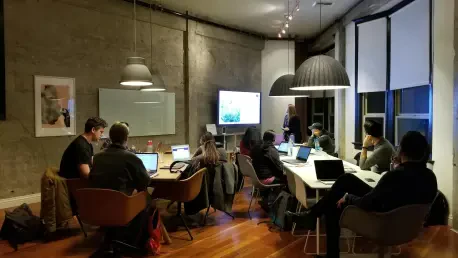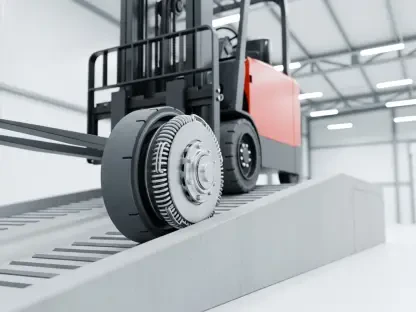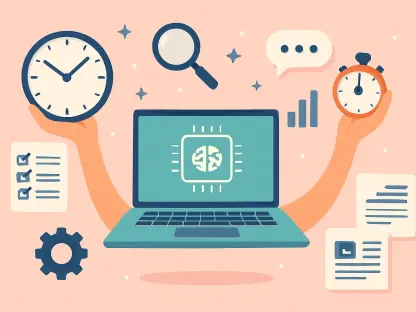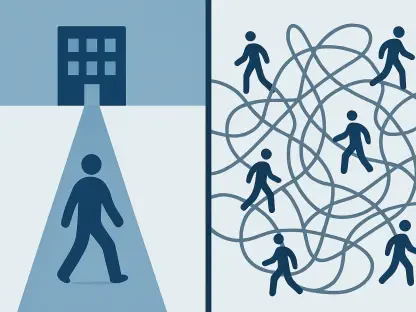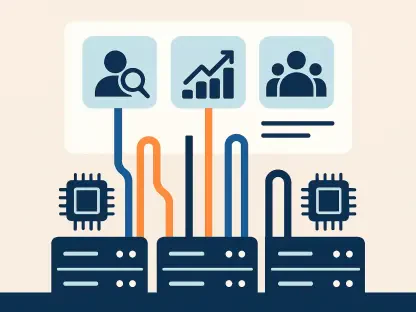In an era where organizations face increasing volatility, the synergy of co-innovation and AI is capturing significant attention. Talent empowerment, enabled through AI transformation, is critical in navigating challenges like geopolitical tensions, disrupted supply chains, and economic unpredictability. Co-innovation, as a mechanism for deft collaboration between technology and human effort, offers a pragmatic pathway for organizations striving to stay ahead. In embracing these methodologies, companies can forge high-trust partnerships, leverage real-time insights, and orchestrate effective adaptive strategies. This piece dissects the current landscape, industry perspectives, and anticipates future implications of co-innovation in AI.
Current Landscape and Growth Trends in Co-Innovation and AI
Data and Adoption Trends
According to recent reports, AI integration into business practices has rapidly increased—from improved customer engagement to operational efficiency. These advancements are highlighted by McKinsey, stating that workflows influenced by data analytics can raise EBITDA by 15% to 25%. Organizations are recognizing AI’s potential to automate labor-intensive processes, enabling teams to focus on strategic value-add tasks. However, successful AI adoption relies not only on the technology itself but on its meaningful integration into everyday operations.
Real-World Applications and Examples
The automotive industry exemplifies co-innovation models effectively. Companies like Tesla have pioneered autonomous driving technologies by facilitating collaboration among diverse teams. Similarly, in healthcare, AI assists in diagnostics and treatment plans, demonstrating the profound influence of co-innovation across various sectors. These instances align with insights showing that a collaborative approach often amplifies AI’s success.
Expert Insights and Industry Perspectives
Industry leaders, particularly Chief Human Resources Officers (CHROs), play a pivotal role in steering AI transformation. Experts assert that AI’s integration has multiplied the need for agile talent management, spurring roles that hinge on both technical and observational expertise. However, challenges such as data biases and insufficient transparency persist. Adjusting to these demands requires a blend of human empathy and AI precision—where co-innovation ecosystems create opportunities for continuous learning and adaptation.
Industry veterans spotlight co-innovation’s impact as profound yet complex. They acknowledge the need for robust learning cultures and continuous improvement to harness the full potential AI offers. This approach aligns with findings from Deloitte that innovative companies often demonstrate superior outcomes. Driving transformative change, therefore, hinges on harnessing diverse perspectives through co-innovation—yielding insight and breakthrough results.
Future Prospects and Implications
Potential developments in co-innovation promise refined strategies for overcoming imminent industry challenges. As technology advances, industries like manufacturing and finance are poised to see revolutionary shifts. These shifts may automate nearly 30% of current labor-intensive activities, transforming workforce expectations and roles. Co-innovation ensures that solutions adapt to the evolving complexities, affording companies a strategic advantage.
As organizations delve deeper into AI-powered solutions, the necessity for collaboration intensifies. While co-innovation can minimize AI’s inherent limitations, it also propels the upskilling of workforces, shaping the future work dynamic. These advances promise not only enhanced productivity but also substantial societal benefits through more equitable economic opportunities.
Conclusion and Call to Action
In summarizing the evolving landscape of co-innovation and AI transformation, it becomes evident today’s organizations must embrace these methodologies to remain competitive. The intersection of human insight and AI automation is instrumental in creating sustainable success. CHROs, equipped with data-driven decisions and collaborative frameworks, have seized these transformational opportunities, leading the charge in redefining work practices. As industries continue to evolve, embracing co-innovation will remain pivotal, ensuring resilient performance amid global uncertainties. Expanding co-innovation will yield novel strategies, facilitating continuous growth and excellence.
